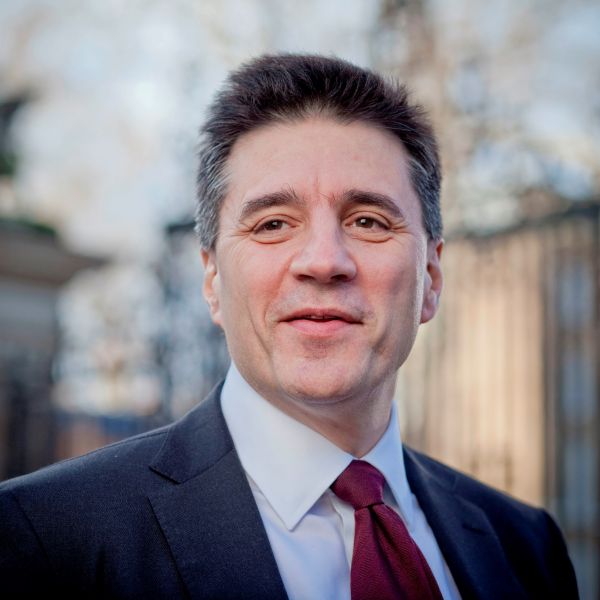On 29th July 2025, the Supreme Court handed down judgment in D.E.L.T.A. Merseyside Limited and another v Uber Britannia Limited [2025] UKSC 31. In doing so, it conclusively upheld the right of operators, drivers and passengers to contract as they wish for the provision of private hire services.
The background was that since long before the Local Government (Miscellaneous Provisions) Act 1976, there were several different contracting models. These included: 1) operators contracting as principal with passengers; 2) operators contracting as agent for drivers; 3) operators running an intermediary service, finding drivers with whom passengers contract; 4) operators sub-contracting to other operators.
Following the 1976 Act, which brought PHVs outside London into regulation for the first time, all these models continued, and HMRC even issued guidance as to the tax treatment of what became called the agency model, but in fact comprised the agency and intermediary models set out above.
That changed with the advent of Uber, though not in the way that Uber hoped and expected. Faced with workers’ rights claims which succeeded in the Employment Tribunal, Uber continued to appeal all the way to the Supreme Court, which not only upheld the claims but rejected Uber’s argument that its then agency model in London was compatible with the London licensing regime: Uber BV v Aslam [2021] UKSC 5; [2021] ICR 657, para 47. The latter rejection was by way of obiter dictum, and therefore not strictly binding on future courts. However, it was followed by the Divisional Court in R (United Trade Action Group Ltd) v Transport for London [2021] EWHC 3290 (Admin).
As a result, Uber was compelled to change its model in London, so as to contract as principal with its passengers. However, Uber went much further in two respects. First, it decided to change its model nationwide and not just in London. Second, it brought the current claim for a declaration that the same legal rule applied outside London, albeit governed by different legislation. Uber’s claim succeeded in the High Court, but was rejected by a unanimous Court of Appeal. Uber then took the case to the Supreme Court, which has now ruled unanimously and conclusively that operators remain free to contract, or indeed not to contract, as they wish.
The case turned on the construction of the Local Government (Miscellaneous Provisions) Act 1976, which received detailed consideration by the Court.
The Court accepted argument on behalf of the Respondents, D.E.L.T.A. Merseyside Limited and Veezu Holdings Limited, argument that the only provision which could conceivably impose an obligation on the operator to contract as principal at the point of booking was section 56(1). However, section 56(1) is to the precise opposite effect, since it provides that, whatever the contracting model adopted, the hirer’s contract will be deemed to be with the operator who accepted the booking.
As Lord Briggs poignantly observed:
The one scenario where the deeming provision in section 56(1) has no role to fulfil is where the first operator actually does accept the booking by making a contract of hire with the applicant, as principal rather than as agent. Then the first operator is liable to fulfil the hire contract at common law, and the assumed statutory purpose of making the first operator liable for the fulfilment of the hire needs no statutory backing at all. And it would make no difference to the first operator’s common law liability to fulfil the hire that it had sub-contracted the hire to be performed by a second operator. Yet that is precisely the hire contract model which UBL submit is actually mandated by the 1976 Act as the only permissible way for the operator to accept the booking. Put shortly, UBL’s construction would render section 56(1) completely otiose.
Uber raised a series of other arguments, including that the 1976 Act was to be read in the same way as the later London legislation, that guidance as to construction was afforded by a 1970 departmental paper regarding London, and that the sub-contracting principles in section 55A, introduced by the Deregulation Act 2015, demonstrated Parliament’s intention to restrict freedom of contract under the 1976 Act. None of these arguments swayed the Supreme Court, whose conclusions were succinctly put:
(i) There is nothing expressly provided in the 1976 Act which can be interpreted as imposing, or even supporting, the prohibition for which UBL contends.
(ii) “Accepting a booking” does not, in context, mean only by contracting as principal to perform the hire.
(iii) There is nothing in the Act or in its purposes from which such a prohibition could be implied, and the Act plainly seeks to achieve public safety by other means through licensing.
(iv) The only provision in the Act which does impose contractual consequences, section 56(1), is wholly inimical to UBL’s construction, and would be otiose if UBL were correct.
Had the judgment gone the other way, it would have posed a significant threat to the provincial private hire industry, not least because of potential VAT implications of requiring the operator to contract, with the potential of uplifts in fares for passengers. The judgment as delivered preserves the legal and practical ability of operators to run their service as they have always done, including by providing an alternative to the app-based private hire model now operated by Uber, an important consideration given that not all passengers have the ability to access private hire services digitally.
Philip Kolvin KC of 11 KBW acted for the First Respondent D.E.L.T.A. Merseyside Limited, leading Jen Coyne of Monckton Chambers, instructed by Layla Barke-Jones of Aaron & Partners.
Philip will speak at a short, free webinar on the case, organised by the Institute of Licensing, on Wednesday 30th July a 12 noon, which can be booked here.
You can read the full judgment here.









